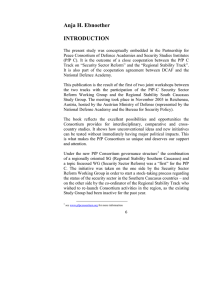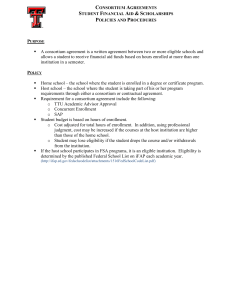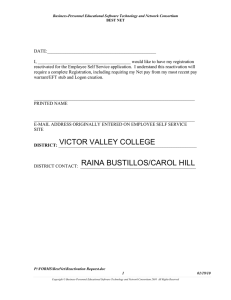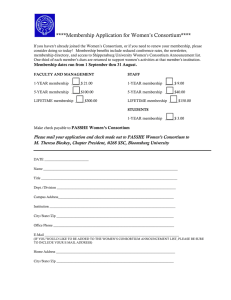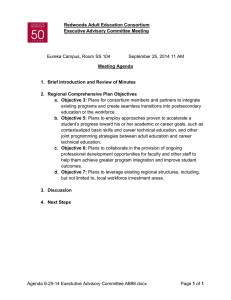PfP CONSORTIUM
advertisement
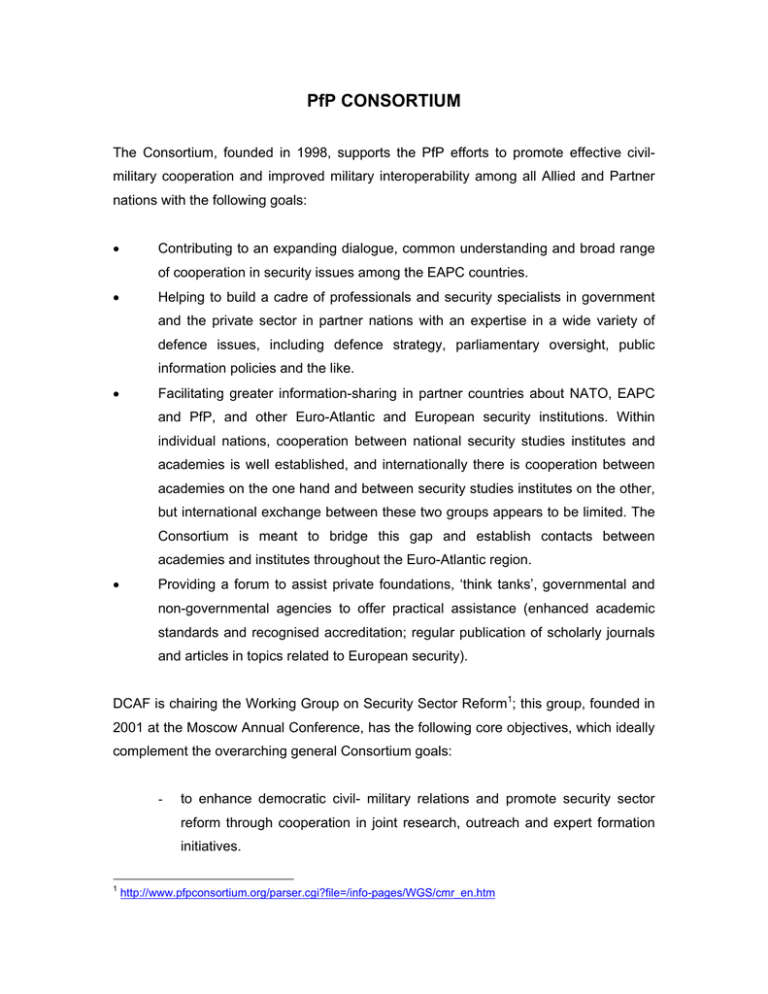
PfP CONSORTIUM The Consortium, founded in 1998, supports the PfP efforts to promote effective civilmilitary cooperation and improved military interoperability among all Allied and Partner nations with the following goals: • Contributing to an expanding dialogue, common understanding and broad range of cooperation in security issues among the EAPC countries. • Helping to build a cadre of professionals and security specialists in government and the private sector in partner nations with an expertise in a wide variety of defence issues, including defence strategy, parliamentary oversight, public information policies and the like. • Facilitating greater information-sharing in partner countries about NATO, EAPC and PfP, and other Euro-Atlantic and European security institutions. Within individual nations, cooperation between national security studies institutes and academies is well established, and internationally there is cooperation between academies on the one hand and between security studies institutes on the other, but international exchange between these two groups appears to be limited. The Consortium is meant to bridge this gap and establish contacts between academies and institutes throughout the Euro-Atlantic region. • Providing a forum to assist private foundations, ‘think tanks’, governmental and non-governmental agencies to offer practical assistance (enhanced academic standards and recognised accreditation; regular publication of scholarly journals and articles in topics related to European security). DCAF is chairing the Working Group on Security Sector Reform1; this group, founded in 2001 at the Moscow Annual Conference, has the following core objectives, which ideally complement the overarching general Consortium goals: - to enhance democratic civil- military relations and promote security sector reform through cooperation in joint research, outreach and expert formation initiatives. 1 http://www.pfpconsortium.org/parser.cgi?file=/info-pages/WGS/cmr_en.htm - to encourage cooperation between international information networks in support of research, outreach and expert formation related to security sector reform - to enhance the exchange of ideas, knowledge, expertise and best practices of security sector reform processes between consolidating and consolidated democracies in the Euro-Atlantic area. The research programme was conceptually prepared by experts from the region within the Partnership for Peace Consortium Working Group on Security Sector Reform, one of 11 Working Groups dealing with different topics. The Working Group meetings were repeatedly made available for discussion of the progress made. The present book aptly reflects the excellent possibilities and opportunities the Consortium provides for comparative and cross-country studies. The Consortium provides for just this kind of meeting of like-minded experts and comprehensive area studies. It is unique in this respect, and deserves our attention and support.

